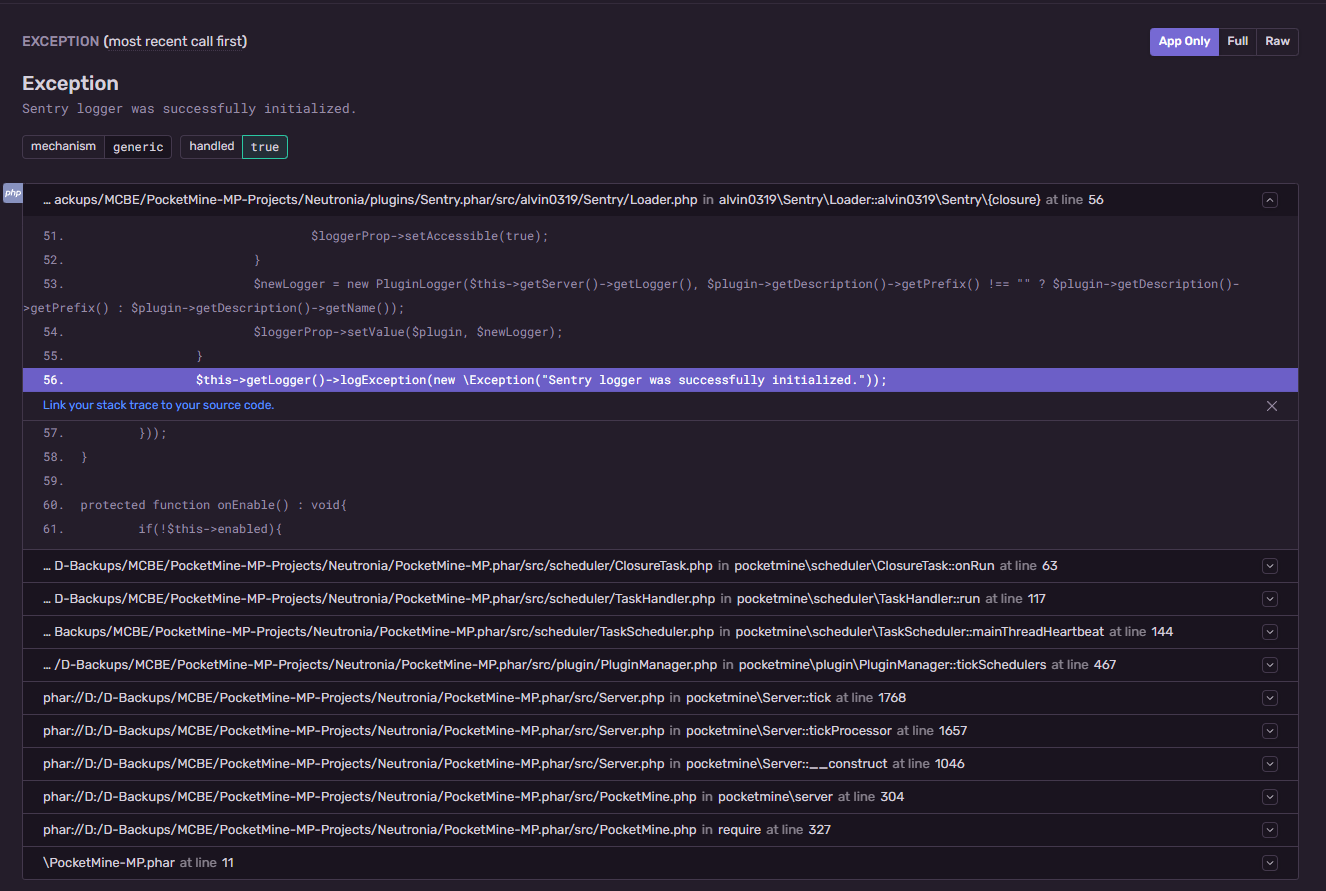RadPHP Logging Component
The Logging library provides multiple logging adapters using a simple interface. With the Logger class it is possible to send a single message to multiple logging adapters at the same time.
By default you can use File or Null as logging adapters, but you can use any object implementing Rad\Logging\AdapterInterface as an adapter for the Logger class.
Usage
You can create new instance adapter and attached to the Logger class. An example would be:
use Rad\Logging\Logger;
use Rad\Logging\Adapter\FileAdapter;
// Attach single or multiple adapters
$logger = new Logger();
$logger->attachAdapter(new NullAdapter());
$logger->attachAdapter(new FileAdapter('/path/to/file.log'));
// Or attaching your adapter
$logger->attachAdapter(new MyAdapter());
// You can pass message to these log levels
$logger->emergency('Something did not work');
$logger->alert('Something did not work');
$logger->critical('Something did not work');
$logger->error('Something did not work');
$logger->warning('Something did not work');
$logger->notice('Something did not work');
$logger->info('Something did not work');
$logger->debug('Something did not work');
The log output is below:
09/Apr/2016 11:18:55 UTC [EMERGENCY] Something did not work
09/Apr/2016 11:18:55 UTC [ALERT] Something did not work
09/Apr/2016 11:18:55 UTC [CRITICAL] Something did not work
09/Apr/2016 11:18:55 UTC [ERROR] Something did not work
09/Apr/2016 11:18:55 UTC [WARNING] Something did not work
09/Apr/2016 11:18:55 UTC [NOTICE] Something did not work
09/Apr/2016 11:18:55 UTC [INFO] Something did not work
09/Apr/2016 11:18:55 UTC [DEBUG] Something did not work
The log message may contain placeholders. Placeholder names must correspond to keys in the context array. Placeholder names must be delimited with a single opening brace { and a single closing brace }. There must not be any whitespace between the delimiters and the placeholder name. Placeholder names should be composed only of the characters A-Z, a-z, 0-9, underscore _, and period .. The use of other characters is reserved for future modifications of the placeholders specification.
The following is an example uses placeholder in log message:
use Rad\Logging\Logger;
use Rad\Logging\Adapter\FileAdapter;
$logger = new Logger();
$logger->attachAdapter(new FileAdapter('/path/to/file.log'));
$logger->info('User "{user_id}" successfully logged in.', ['user_id' => 2]);
Transactions
Transactions store log data temporarily in memory and later on write the data to all adapters.
use Rad\Logging\Logger;
use Rad\Logging\Adapter\FileAdapter;
$logger = new Logger();
$logger->attachAdapter(new FileAdapter('/path/to/file.log'));
$logger->begin();
try {
//Code here
$logger->commit();
} catch (\Exception $e) {
$logger->rollback();
throw $e;
}
Formatter
You can use formatter for format log lines or implementing your own formatter. Your formatter must be implemented Rad\Logging\FormatterInterface, Default formatter is LineFormatter
use Rad\Logging\Logger;
use Rad\Logging\Adapter\FileAdapter;
$logger = new Logger();
$fileAdapter = new FileAdapter('/path/to/file.log');
$fileAdapter->setFormatter(new LineFormatter("%time% :: {%level%} :: %message%\n", 'G:i:s T'));
$logger->attachAdapter($fileAdapter);
$logger->emergency('Something did not work');
$logger->alert('Something did not work');
The log output with new format:
11:18:55 UTC :: {EMERGENCY} :: Something did not work
11:18:55 UTC :: {ALERT} :: Something did not work
These variables available for LineFormatter:
| Variables | Description |
|---|---|
| %time% | Log time |
| %level% | Log level |
| %message% | Log message |




